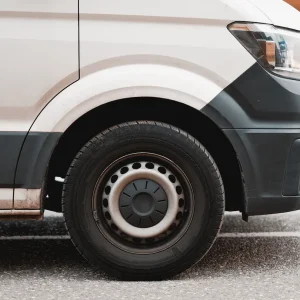HMRC is planning to introduce a company car-style personal taxation system for vans fitted with car-like equipment such as air-conditioning, leather seats and DAB radios.
Although it has yet to be confirmed, rumours are swirling that the Government is considering such a measure in order to generate revenue from businesses and drivers operating such vehicles and also using them for personal journeys. Currently, lower rate taxpayers pay 20% of the van benefit tax figure of £3150 while higher rate users are liable for 40%.
Speaking to BusinessCar, Andy Picton, commercial vehicle editor at vehicle valuations experts Glass’s, said: “There are rumours that the Government is looking to tax top-end vans with car-like specifications in a similar way to cars. There have been talks for a long time about vans being taxed on a car-like basis and there are definitely conversations going on at the moment.”
James Davis, director of commercial vehicles at remarketing firm Manheim, added: “HMRC is looking at ‘lifestyle vans’, as I call them. What they’re saying is any [van] that has a spec similar to an executive car, they are going to look at the benefit-in-kind payment, which is currently different for a commercial vehicle than it is for a car.”
One LCV manufacturer that wished to remain anonymous admitted that the issue was “on the industry’s radar.”
HMRC neither confirmed nor denied the rumours but a spokesperson told BusinessCar that HM Treasury would ultimately be responsible for such a policy. A spokesperson for the Treasury said: “We keep all taxes under review.”
Glass’s’ Picton and Manheim’s Davis warned that the introduction of such a policy would result in the aftermarket conversion industry going “underground”, fitting luxury equipment to vehicles after the initial sale in order to avoid the tax.
“It could lead to those who want [luxury equipment] to buy a standard van then go to aftermarket converters to get around the tax, adding alloys, air-conditioning etc.,” said Picton.
“The conversion market will go underground because people will still want those vehicles, so they’ll buy a basic van and have the work done themselves – and you’re seeing a lot of that now anyway,” added Davis.
He also claimed there could be a knock-on effect on residual values and that manufacturers would likely resort to selling basic vans: “It could have a massive negative impact on residual values. Much like when they played around with the taxation for emissions a few years ago and many cars went into a higher road fund licence, it killed the [used] market for 4x4s and large, high-emission cars – and the same could happen for [high-specification] vans.”
Davis continued: “Arguably, what will happen is that the manufacturers will just down-spec everything and aftermarket converters will step in. So either the HMRC gets revenue as it does now or it loses the opportunity because it’s pushing new vehicle prices downwards and more people will buy lower-spec vehicles.”





